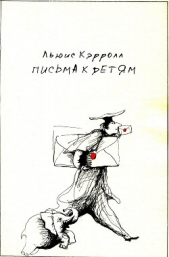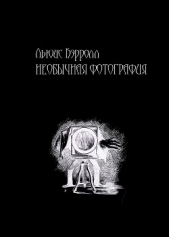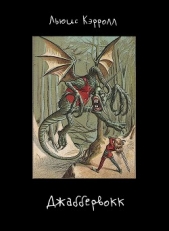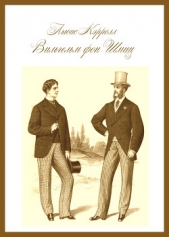Novelty and Romancement

Novelty and Romancement читать книгу онлайн
Рассказ Льюиса Кэрролла "Novelty and Romancement" представлен в этой публикации в русских переводах и в английском оригинале, что даёт читателю возможность для сравнения.
Внимание! Книга может содержать контент только для совершеннолетних. Для несовершеннолетних чтение данного контента СТРОГО ЗАПРЕЩЕНО! Если в книге присутствует наличие пропаганды ЛГБТ и другого, запрещенного контента - просьба написать на почту [email protected] для удаления материала
"When Desolation snatched her tearful prey
From the lorn empire of despairing day;
When all the light, by geraless fancy thrown.
Served but to animate the putrid stone;
When monarchs, lessening on the wildered sight,
Crumblingly vanished into utter night;
When murder stalked with thirstier strides abroad,
And redly flashed the never-sated sword;
In such an hour thy greatness had been seen —
That is, if such an hour had ever been —
In such an hour thy praises shall be sung.
If not by mine, by many a worthier tongue;
And thou be gazed upon by wondering men,
When such an hour arrives, but not till thenl"
Alfred Tennyson is Poet Laureate, and it is not for me to dispute his claim to that eminent position; still I cannot help thinking, that if the Government had only come forward candidly at the time, and thrown the thing open to general competition, proposing some subject to test the powers of the candidate (say "Frampton's Pill of Health, an Acrostic"), a very different result might have been arrived at.
But let us return to our muttons (as our noble allies do most unromantically express themselves), and to the mechanic of Great Wattles-street. He was coming out of a small shop — rudely built it was, dilapidated exceedingly, and in its general appearance seedy — what did I see in all this to inspire a belief that a great epoch in my existence arrived? Reader, I saw the signboard!
Yes. Upon that rusty signboard, creaking awkwardly on its one hinge against the mouldering wall, was an inscription which thrilled me from head to foot with unwonted excitement. "Simon Lubkin. Dealer in Romancement." Those were the very words.
It was Friday, the fourth of June, half-past four p.m.
Three times I read that inscription through, and then took out my pocketbook, and copied it on the spot; the mechanic regarding me during the whole proceeding with a stare of serious and (as I thought at the time) respectful astonishment.
I stopped that mechanic, and entered into conversation with him; years of agony since then have gradually branded that scene upon my writhing heart, and I can repeat all that passed, word for word.
Did the mechanic (this was my first question) possess a kindred soul, or did he not?
Mechanic didn't know as he did.
Was he aware (this with thrilling emphasis) of the meaning of that glorious inscription upon his signboard?
Bless you, mechanic knew all about that 'ere.
Would mechanic (overlooking the suddenness of the invitation) object to adjourn to the neighbouring public-house, and there discuss the point more at leisure?
Mechanic would not object to a drain. On the contrary.
(Adjournment accordingly: brandy-and-water for two: conversation resumed.)
Did the article sell well, especially with the "mobile valgus"!
Mechanic cast a look of good-natured pity on the questioner; the article sold well, he said, and the vulgars bought it most.
Why not add "Novelty" to the inscription? (This was a critical moment: I trembled as I asked the question.)
Not so bad an idea, mechanic thought: time was, it might have answered; but time flies, you see.
Was mechanic alone in his glory, or was there any one else who dealt as largely in the article?
Mechanic would pound it, there was none.
What was the article employed for? (I brought this question out with a gasp, excitement almost choking my utterance.)
It would piece almost anything together, mechanic believed, and make it solider nor stone.
This was a sentence difficult of interpretation, I thought it over a little, and then said, doubtfully, "you mean, I presume, that it serves to connect the broken threads of human destiny? to invest with a — with a sort of vital reality the chimerical products of a fertile imagination?"
Mechanic's answer was short, and anything but encouraging; "mought be — , I's no scollard, bless you."
At this point conversation certainly began to flag; I was seriously debating in my own mind whether this could really be the fulfilment of my life-cherished dream; so ill did the scene harmonize with my ideas of romance, and so painfully did I feel my companion's lack of sympathy in the enthusiasm of my nature — an enthusiasm which has found vent, ere now, in actions which the thoughtless crowd have too often attributed to mere eccentricity.
I have risen with the lark — "day's sweet harbinger" — (once, certainly, if not oftener), with the aid of a patent alarm, and have gone forth at that unseemly hour, much to the astonishment of the housemaid cleaning the door steps, to "brush with hasty steps the dewy lawn", and have witnessed the golden dawn with eyes yet half-closed in sleep. (I have always stated to my friends, in any allusion to the subject, that my raptures at that moment were such that I have never since ventured to expose myself to the influence of excitement so dangerous. In confidence, however, I admit that the reality did not come up to the idea I had formed of it over night, and by no means repaid the struggle of getting out of bed so early.)
I have wandered in the solemn woods at night, and bent me o'er the moss-grown fountain, to lave in its crystal stream my tangled locks and fevered brow. (What though I was laid up with a severe cold in consequence, and that my hair was out of curl for a week? Do paltry considerations such as these, I ask, affect the poetry of the incident?)
I have thrown open my small, but neatly furnished, cottage tenement, in the neighbourhood of St. John's Wood, and invited an aged beggar in to "sit by my fire, and talk the night away". (It was immediately after reading Goldsmith's "Deserted Village". True it is that he told me nothing interesting, and that he took the hall-clock with him when he departed in the morning; still my uncle has always said that he wishes he had been there, and that it displayed in me a freshness and greenness of fancy (or "disposition", I forget which) such as he had never expected to see.)
I feel that it is incumbent on me to enter more fully into this latter topic — the personal history of my uncle: the world will one day learn to revere the talents of that wonderful man, though a want of funds prevents, at present, the publication of the great system of plulosophy of which he is the inventor. Meanwhile, out of the mass of priceless manuscripts which he has bequeathed to an ungrateful nation, I will venture to select one striking specimen. And when the day arrives that my poetry is appreciated by the world at large (distant though it now appear!) then, I feel assured, shall his genius also receive its meed of fame!
Among the papers of that respected relative, I find what appears to have been a leaf torn from some philosophical work of the day: the following passage is scored. "Is this your rose? It is mine. It is yours. Are these your houses? They are mine. Give to me (of) the bread. She gave him a box on the ear." Against this occurs a marginal note in my uncle's handwriting: "some call this unconnected writing: I have my own opinion." This last was a favourite expression of his, veiling a profundity of ethical acumen on which it would be vain to speculate; indeed, so uniformly simple was the language of this great man, that no one besides myself ever suspected his possessing more than the ordinary share of human intellect.
May I, however, venture to express what I believe would have been my uncle's interpretation of this remarkable passage? It appears that the writer intended to distinguish the provinces of Poetry, Real Property, and Personal Property. The inquirer touches first on flowers, and with what a gush of generous feeling docs the answer break upon him! "It is mine. It is yours." That is the beautiful, the true, the good; these are not hampered by petty consideration of "meum." and "tuum"; these are the common property of men. (It was with some such idea as this that I drew up the once celebrated bill, entitled "An Act for exempting Pheasants from the operation of the Game Laws, on the ground of Beauty" — a bill which would, doubtless, have passed both Houses in triumph, but that the member who had undertaken the care of it was unfortunately incarcerated in a Lunatic Asylum before it had reached the second reading.) Encouraged by the success of his first question, our inquirer passes on to "houses" ("Real Property", you will observe); he is here met by the stem, chilling answer, "They are mine"—none of the liberal sentiment which dictated the former reply, but in its place a dignified assertion of the rights of property.


























